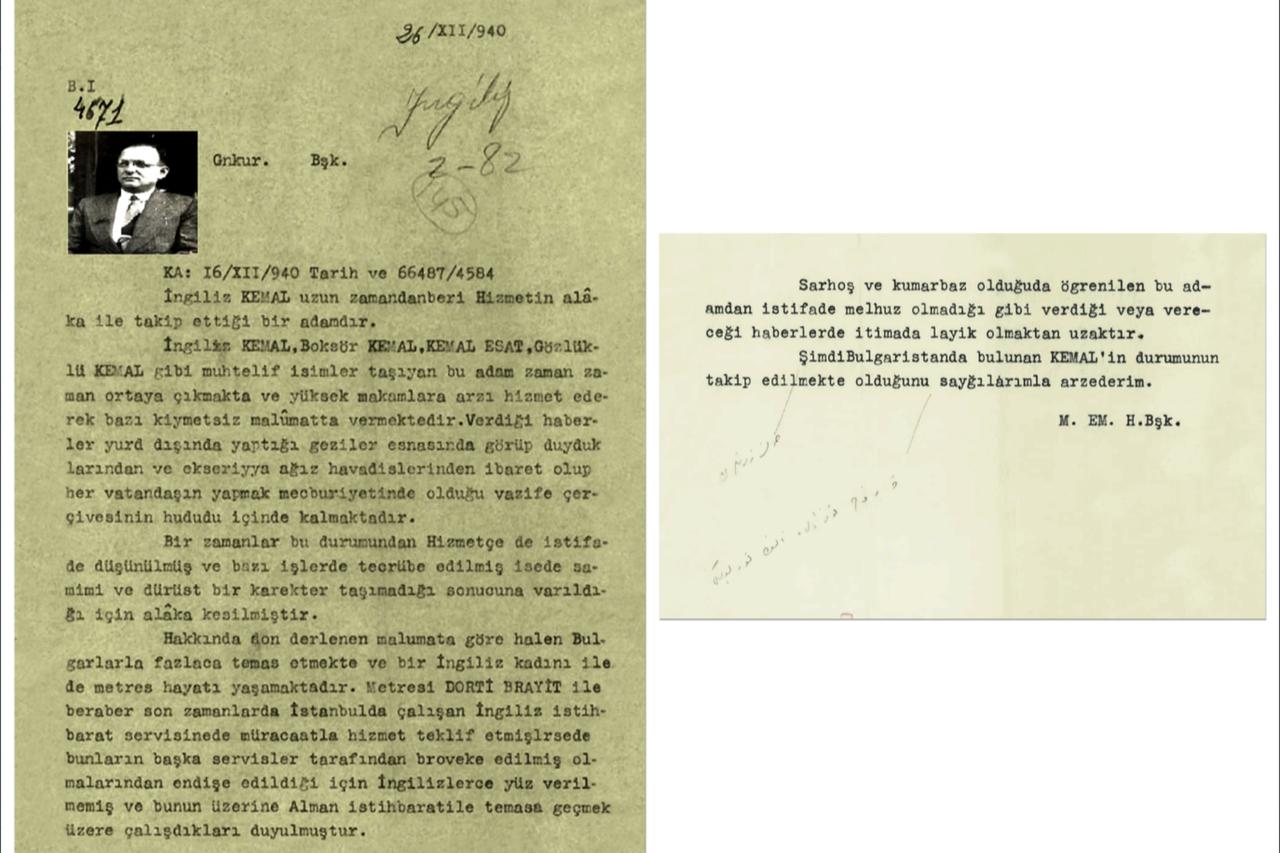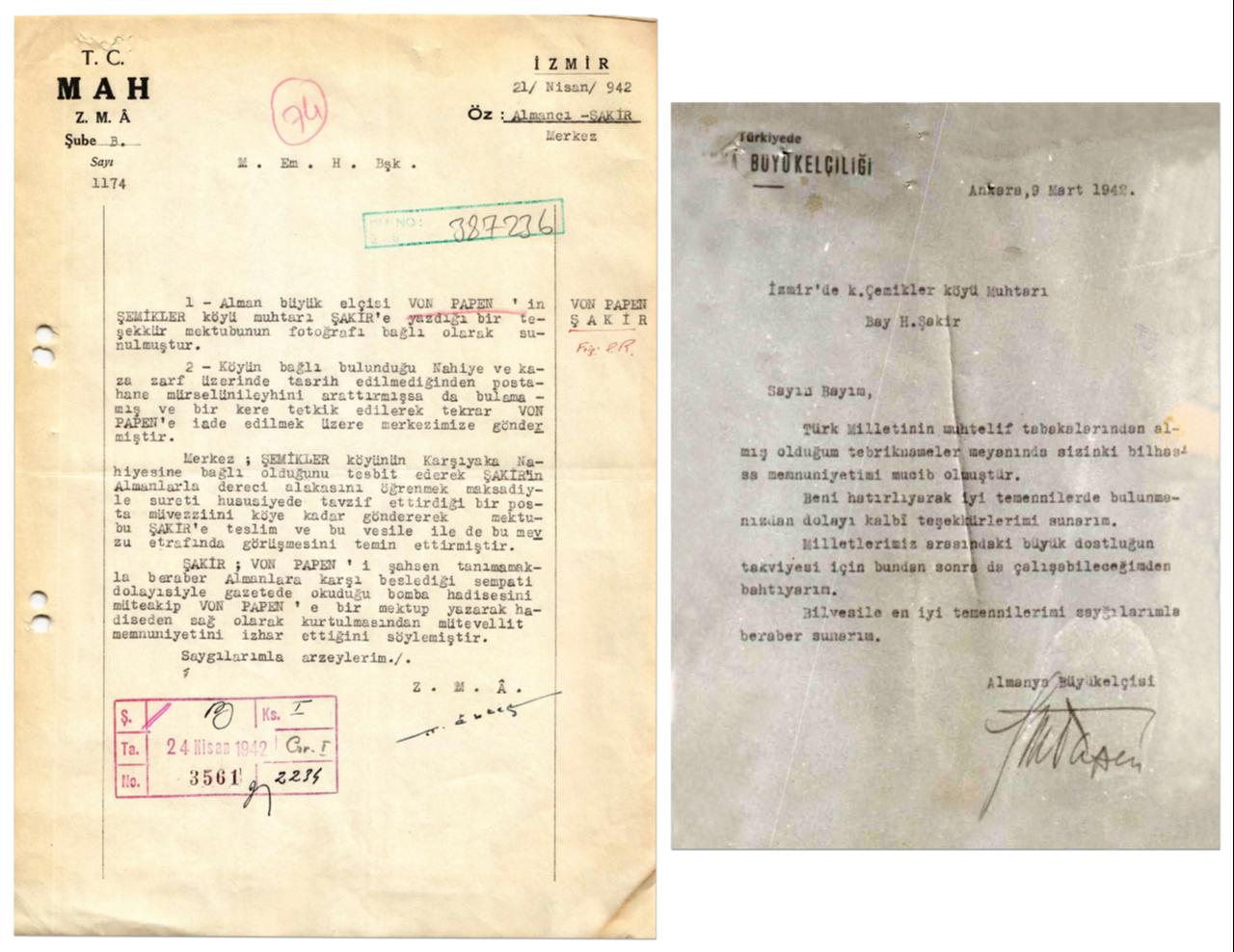
The National Intelligence Organization (MIT) has released a newly declassified document containing a negative opinion about Ahmet Esat Tomruk, known as “English Kemal,” a famous intelligence figure from the Turkish War of Independence, in its online “Special Collection” section.
The newly published intelligence report, dated December 26, 1940, was sent by the National Security Service Directorate (MAH) to the General Staff.
The document portrays Tomruk as a figure long monitored by the Service, who frequently sought attention from high-ranking officials by offering “worthless information.”
The report described Tomruk, also known by aliases such as “Boxer Kemal,” “Kemal Esat,” and “Kemal with Glasses,” as “neither sincere nor trustworthy.”
It stated that while he had once been tested for possible intelligence use, officials concluded he lacked honesty and reliability.
The report continued: “He has recently been in close contact with Bulgarians and is living with an English woman named Dorti Brayit."
"Together, they offered their services to the British Intelligence Service in Istanbul but were rejected out of suspicion that they might have been provoked by another service. It is believed they later sought contact with German intelligence.”
The MAH report also noted that Tomruk was known to be “a drunkard and gambler,” adding that his reports were not credible and his activities were being closely monitored in Bulgaria.
A photograph of Ahmet Esat Tomruk was included in the document.

MIT also released another document from 1942 involving Franz von Papen, the German ambassador to Türkiye during World War II.
The file contains a letter sent by von Papen to Sakir, the village mukhtar of Semikler near İzmir, and a related report from the Izmir Central Command.
Von Papen’s March 9, 1942, letter expressed gratitude to the Turkish mukhtar for his well wishes after a bombing incident: “Among the many congratulatory letters I have received from various segments of the Turkish nation, yours has been particularly pleasing. Thank you for your kind words. I will be happy to continue strengthening the great friendship between our nations.”
In response, the Izmir Central Command reported on April 21, 1942, that the letter had initially been undelivered but was later traced to Semikler village.
A postal officer was sent to deliver it personally and to observe the recipient’s connections with German officials.
According to the report, Sakir stated that he did not personally know von Papen but had written to him out of sympathy for the German people and relief that the ambassador had survived the bombing unharmed.